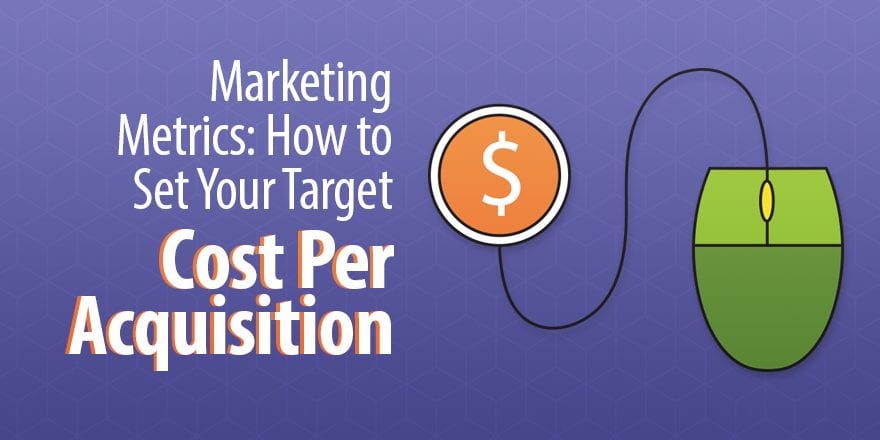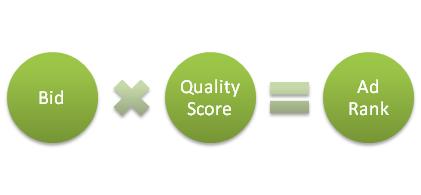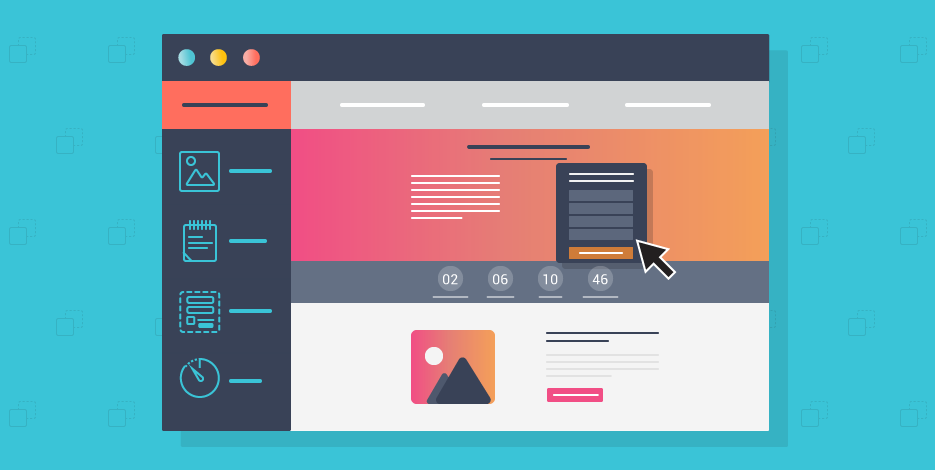12 min to read
Target CPA - How to Generate new leads and customers?
With the advancement in technologies, every aspect of digital marketing is affected, and PPC is no exception. Target CPA is a smart and effective bidding strategy by Google that helps advertisers get as many conversions as possible by automatically optimizing the bids and bidding at different auction times to get the maximum result at or below the target CPA. Target CPA is a great strategy for advertisers and marketers as they don't have to sit all day and change bids continuously. The algorithm powered by machine learning knows the time to offer the right bid to get the most for the marketers.
The concept of Target CPA or Cost Per Acquisition is an approach that utilizes automated bid adjustments. Of tweaking bids based on intuition or limited information, as in traditional methods this strategy relies on a powerful algorithm to handle the bidding process. By analyzing auction dynamics and user behavior the system determines the favorable moments to make a bid. The ultimate objective is to achieve conversions at costs that're equal to or lower than the predefined target CPA.
CodeDesign is the leading digital marketing agency in Lisbon Portugal.
For advertisers and marketers this method brings about changes. The noticeable benefit is its efficiency. Manual bid adjustments can be time consuming and prone to mistakes. With automation taking charge of this process advertisers can concentrate on aspects of their campaigns while ensuring optimal bid placements through the system. This not saves time but also often leads to improved returns on investment.
Moreover the underlying machine learning technology adds another layer of sophistication. This technology has the capability to analyze amounts of data in time and identify patterns and trends that may go unnoticed by humans. By leveraging these insights the Target CPA strategy can predict the timing and circumstances for placing bids thus ensuring advertisers achieve results, for their campaigns.
Basically Target CPA is an example of how technology and marketing strategy work to make bidding easier and improve results. For advertisers who want to stay in the world of marketing it's not just beneficial but absolutely necessary to embrace these strategies.
What is Target CPA Bidding?
In the words of Google Support, "Target CPA is a Google Ads Smart Bidding strategy that sets bids to help get as many conversions as possible at or below the target cost-per-action (CPA) you set. It uses advanced machine learning to optimize bids automatically and offers auction-time bidding capabilities that tailor bids for every auction."
Who is Target CPA for?

Target CPA could be an excellent choice for direct response advertisers who have a big focus on driving conversions at a given cost per action. Target CPA could help B2B companies generate leads because they could go for a profitable CPA. Also, it would allow the marketers to leverage Google's Machine Learning and extensive data to the benefit. However, target CPA may fail in driving data-driven results if the CPA amount is unrealistically low for the industry or if you have low conversion data historically.
For B2B companies lead generation is often crucial, for success. Target CPA offers an approach in this regard. By setting a cost per acquisition (CPA) that aligns with profitability metrics B2B companies can optimize their advertising spend. This ensures that they invest in prospects that provide a return on investment (ROI). The strategy focuses on precision targeting than casting a net reaching the right audience at an appropriate cost.
One notable aspect of the Target CPA strategy is its integration, with Googles machine learning capabilities. By adopting this strategy marketers tap into Googles reservoir of accumulated data. This data is refined by machine learning algorithms that identify patterns predict trends. Offer insights typically overlooked by analysts. Leveraging this power empowers marketers to make decisions and enjoy the benefits of an intelligent advertising strategy.
Read this complete guide on digital marketing funnel and then choose the right digital marketing channel for your business.
Nevertheless like any tool Target CPA has its limitations and potential challenges. If an advertiser sets a goal that's unreasonably low compared to the industry average they run the risk of undermining the effectiveness of their strategy. This can result in outcomes as the system may avoid auctions, due to budget constraints. Moreover historical data plays a role in achieving success with Target CPA. For businesses that have limited conversion data the machine learning algorithm might struggle to optimize since it has past information to rely on. It's like trying to navigate without a compass; without previous data to guide it the strategy can sometimes go off track.
In summary, although Target CPA offers potential, for advertisers in terms of efficiency and insights driven by data it's important to approach it with an understanding of its strengths and limitations. By calibrating it and considering industry benchmarks and sufficient historical data Target CPA can truly transform businesses.
How does Target CPA work?
The algorithm uses the historical information of your campaign. Then, it evaluates the contextual signals available at the auction time to automatically find an optimal bid every time your ad is eligible to appear to the audience. As a result, Google ads conversion rate may vary depending on changes to your website, ads, or increased competition in ad auctions. Google ads try to keep the price per conversion equal to the target CPA you set on an average, but your actual conversion rate can be lower or higher than the predicted conversion rate. Check these Amazon FBA tips to grow your business and see how optimising your Amazon listing could help you grow.
Google says that if you have a target bid of hundred dollars, then Google ads will automatically adjust your bids at each auction to get you as many conversions at your given CPA, that is, a hundred dollars. Factors and real-time signals like the location, time of day, device, remarketing list, etc., are considered while automatically bidding in the auction.
The average Target cost-per-action is the traffic weighted average CPA, which includes the average of your device bid adjustments and ad group target CPA.
Work with us, a leading digital marketing agency to assist you in Google Ads.
Target CPA metric

To calculate your campaign's most accurate advertising cost-per-acquisition, divide the total advertising amount spent by the number of acquisitions created. To get the maximum benefit for every dollar spent, you could set to pay for conversions instead of clicks on your ads.
To find the average target CPA metric,
Head over to the performance table at the top of your "Campaigns" page.
To evaluate your actual performance against target performance,
Select average target CPA, average target cost per install, average target cost per in-app action in the performance category when adding a new column or by adding it to the performance chart.
Target Cost Per Acquisition Optimisation
Platforms like Google want their users to have the best experience to return to Google again and again. Thus, Google doesn't allow the highest bidder to win the auction. Instead, it uses a metric called AdRank to decide the auction winners.
AdRank considers two factors:

1. Landing page's relevance in terms of keyword, user experience, and click-through rate. It is to avoid the spammers or low-quality pages from coming in front of the vast audience reach of Google.
2. CPC Bid: it is the highest amount that you bet for your keyword.
Google wants to promote the best advertisers with the best content and bid on the SERP results. Also, Google is obsessed with giving the best user experience by avoiding bad advertisers from advertising.
As discussed, the quality score measures the relevancy and the experience your content provides to the users. Therefore, it is highly recommended to create high-quality, secure, and user-friendly landing pages.
The importance of the landing page covers aspects;
Relevance, to Keywords - The content on your landing page should seamlessly align with the keywords you are targeting. It's not about using the keyword also about addressing the searchers intent behind that particular keyword. Googles advanced algorithms can easily determine whether a page genuinely offers content that matches a search term or if it is simply overloaded with keywords.
User Experience (UX) - A good UX goes beyond design. It considers how users navigate through your page from the moment they arrive until they leave. This includes navigation, fast loading times, mobile optimization and clear calls to action. A great UX not improves your Google rankings. Also increases conversions.
Click Through Rate (CTR) - This metric indicates how relevant your ad is, to searchers. A higher CTR often suggests that your ad resonates well with the audience motivating them to explore what you have to offer in detail. However it is essential to ensure that once users click on your ad they find what they were expecting on the landing page.
Google focuses on these factors to create an environment where quality and relevant content thrives. This ensures that spammers or lower-quality pages don't take advantage of Google's audience base.
Cost Per Click (CPC) Bid - This refers to the amount you're willing to pay each time someone clicks on your ad. While its important to have bidding it's equally crucial to balance this with a return, on investment. It's not enough to increase the CPC bid as it doesn't guarantee ad placements or results. The bid should be combined with relevance and quality for an impact.
Google's main goal goes beyond making a profit. Although advertising revenue is significant for Google, its primary commitment is to its users. By prioritizing advertisers who offer high-quality content along with bids Google can provide the experience, on its Search Engine Results Pages (SERPs). This careful balancing ensures that users are directed toward relevant advertisers that align with their search intentions.
Quality Score and Its Importance - Google Quality Score isn't a number; it reflects how relevant, credible and user-friendly your content is. Experienced marketers understand that to truly succeed in the world of PPC advertising they must pay attention to both the factors such, as bids and the qualitative aspects such as content and user experience. Therefore it is crucial for long-term success, in the advertising industry to invest in designed, secure and user friendly landing pages. It's not just a suggestion; it's a necessity.
Read this guide on E-commerce supply chain and voice search optimization.
Landing Page Optimization:

Analyze the intent behind the search and create content to satisfy the need of the visitor:
You would never want to spend money only to disappoint the visitors when they land at your page, and neither does Google wants it. Therefore, understand the intent behind the keyword search and put only the most relevant information that could satisfy the user's need. Also, as the purpose behind any advertisement is to drive maximum conversions, make sure that you evoke enough curiosity in your audience and highlight the benefits clearly and convincingly. You must also focus on real-estate SEO.
Design a convincing landing page:
Your landing page is the first experience you are selling to your audience. You could design a relevant and convincing landing page to evoke your audience's curiosity with interesting headlines, subheadings, adding relevant images or videos. Avoid using multiple links because you don't want to distract your audience and let them leave the funnel only by exiting the page or by converting.
1. A landing page serves as more, than a webpage for experienced digital marketers. It acts as a storefront and the initial interaction with customers. The design, content and functionality of the landing page play a role in creating impressions that can either make or break conversion opportunities.
2. Professional design goes beyond aesthetics; it involves aligning the layout, color scheme and elements with the intended purpose of the page. This means every element, including buttons and images should have a placement, size and appearance that serves its purpose effectively.
3. The impact of crafted copy should not be underestimated. Choosing the words can ignite interest establish trust or prompt action. Start with an attention grabbing headline that succinctly conveys your primary value proposition. Follow it up with subheadings that delve deeper into your message while highlighting the benefits of what you're offering.
4. Visual elements play a role in complementing information by evoking emotions and providing context. Incorporating images or videos can enhance understanding prevent content monotony and increase engagement levels. However it's essential to ensure these visuals align, with your brand identity and convey your intended message effectively.
They need to be of quality load quickly and be optimized for devices.
5. Reducing Distractions. For professionals it is important to understand user behavior. In the world of marketing attention is highly valued. If a landing page contains links or irrelevant information there is a risk of diverting the audiences focus. Each additional link could potentially lead them away, from the desired outcome. Therefore it is crucial to maintain an focused journey. The main exit paths should. Guide users towards a conversion action (such, as signing up or making a purchase). Allow them to exit the page in a standard manner. This ensures that the audiences attention remains on the message and desired action.
Focus on conversions instead of clicks.
The ultimate goal of your campaign is to drive maximum sales and conversions. It would be best if you avoided vanity metrics like clicks or views. Your utmost desire should be to persuade your customer persona to take your desired action, and it is only possible if your brand value resonates with your audience. Make sure that you have the right content, the right appearance, and authoritativeness in the market.
Things to keep in mind before launching target CPA:
1. Test your target CPA campaigns on the highest conversion driver campaigns.
2. Try to launch target CPA if you have at least 15 conversions in the last 30 days so that Google has more data to optimize your campaign.
3. Ensure that you don't make significant changes to your landing page, as it could play a major role in CPA and conversion volume.
4. Don't put unrealistic target CPA as it would be detrimental and have a major negative impact on conversion volume.
Pros of target CPA
1 Automatic adjustment in your bidding to hit CPA targets.
2 The robust machine learning algorithm optimizes the bidding when the users are most likely to convert.
3 The robust automation ensures that there is minimum involvement from the account manager.
Cons of target CPA
1 You don't have much manual control over the bids.
2 Not much control over the traffic quality.
3 Sometimes, the bidding may be more than the CPA set by you.
How do you set a target CPA as part of a portfolio strategy?
It is quite easy to set up the portfolio bidding strategy. You just need to click on the tools in the upper right-hand corner and click on Bid strategies under the shared library section. At this stage, Google ads would direct you to a new interface, the bid strategy interface.
You have to click on the plus icon where you would be shown multiple strategies in the drop-down menu, but select target CPA as of the bidding strategy. Here is a complete guide on how you could use the digital marketing funnels to expand your customer base and how sell directly on Amazon with a detailed plan on Amazon listing optimization.
If you have already created a campaign, you can click on the "select campaign" option. Otherwise, you could opt to leave this section blank. You must name the best strategy properly and set the target CPA appropriately and click on the advanced options if you want to set a bit of limit for cost per click. After you click save, you could use this strategy across all the lead campaigns.
- b- To begin, navigate to the tools and settings located in the right hand corner of the Google Ads interface. It's essential for experienced marketers to regularly engage with these tools as they provide functions for campaign management. From the drop down menu locate the "Bid strategies" option within the library. By selecting this option you will enter an interface designed specifically for bid strategy management.
- Initiating a New Strategy - The user friendly design of Google Ads includes a '+' (plus) icon that signifies the creation of an element—such as a bid strategy in this case. Click on this icon to reveal strategies tailored to different advertising goals and market scenarios. For a CPA approach choose "Target CPA" from the drop down menu.
- Integration with Marketing Funnel - As experts are well aware bidding strategies don't operate independently; they must be integrated into the marketing funnel to ensure consistency, in messaging, targeting and optimization.
When choosing the Target Cost Per Acquisition (CPA) it's important to consider where your audience stands in the sales funnel as this directly impacts the CPA value you will set.
- Campaign Selection - If you already have an existing campaign and want to apply this strategy to it you can use the " campaign" option. This allows for an integration of your bidding strategy, with ongoing campaigns. If you are designing a strategy without application you can leave this section empty.
- Naming and Setting Parameters - It is crucial to give your strategy an descriptive name, which is often overlooked but essential for identification especially when managing multiple strategies. Next set your target CPA based on data analysis and a solid understanding of your conversion metrics and business goals. Remember that the ideal CPA strikes a balance between affordability and competitive positioning.
- Advanced Options - For those who prefer control over their bids Google Ads offers an " options" section. Here you can set a limit for your cost per click (CPC). This feature is useful, for campaigns where budget limitations are a consideration.
- Finalizing the Strategy - Once you have carefully set up all the parameters simply click on the "button". After doing your strategy will not be saved but also ready, for use, in all relevant lead campaigns. This guarantees a data-driven bidding approach.
Conclusion
Target CPA is the automated bid strategy that sets bids for you to bring maximum conversions as possible at the target cost per action set by you. Google claims that target CPA uses your conversion tracking data to avoid unprofitable clicks.
Target CPA could be an excellent option if your main advertising goal is to get conversions like sales, signups, mobile app downloads, etc., as it is created to help you get more sales while paying less for the clicks that lead to those purchases.
Here is a complete guide on the latest revolution - Voice Search Optimization

About Bruno GavinoBruno Gavino is the CEO and partner of Codedesign, a digital marketing agency with a strong international presence. Based in Lisbon, Portugal, with offices in Boston, Singapore, and Manchester (UK) Codedesign has been recognized as one of the top interactive agencies and eCommerce agencies. Awarded Top B2B Company in Europe and Top B2C company in retail, Codedesign aims to foster personal relationships with clients and create a positive work environment for its team. He emphasizes the need for digital agencies to focus on data optimization and performance to meet the increasingly results-driven demands of clients. His experience in digital marketing, combined with a unique background that includes engineering and data, contributes to his effective and multifaceted leadership style. |

About CodedesignCodedesign is a digital marketing agency with a strong multicultural and international presence, offering expert services in digital marketing. Our digital agency in Lisbon, Boston, and Manchester enables us to provide market-ready strategies that suit a wide range of clients across the globe (both B2B and B2C). We specialize in creating impactful online experiences, focusing on making your digital presence strong and efficient. Our approach is straightforward and effective, ensuring that every client receives a personalized service that truly meets their needs. Our digital agency is committed to using the latest data and technology to help your business stand out. Whether you're looking to increase your online visibility, connect better with your audience, get more leads, or grow your online sales. For more information, read our Digital Strategy Blog or to start your journey with us, please feel free to contact us. |
CodeDesign is leading:
- Digital Agency
- Digital Marketing Agency
- Digital Ecommerce Agency
- Amazon Marketing Agency


Add comment ×